|
“She said yes!” is commonly heard in engagement stories, echoing the excitement and joy of making the decision to have one’s life forever complemented with another in marriage. As we prepare to celebrate the Solemnity of the Annunciation on Saturday, the Church rejoices in Mary’s acceptance of God’s place for her in His divine plan of the salvation of mankind. Of course, Mary’s “yes” to God is not the only such instance in Scripture; on the contrary, each protagonist’s story within its pages involves his or her responding to the will of God throughout history, from God’s command to “be fruitful and multiply” to Adam and Eve through his instruction to the exiled St. John the Evangelist to “Write, therefore, what you have seen, what is now and what will take place later.” Just like each person in Scripture, we too can share in the delight of accepting God’s will for us through our faith and the surrendering of our personal desires and wants to Divine Providence.
Every book of the Bible recounts at least one instance of God calling a prophet, judge, king, or another figure, no matter their status, to a higher purpose. I particularly enjoy the story of the boy Samuel, whom God called three times before the future judge and prophet, finally understanding Who kept waking him, answered. All of these accounts are more than nice stories—they serve to illustrate the different ways of answering God’s call as well as how God continues to guide us after we answer. The biblical theme still rings true today: “I have called you by name, and you are mine.” On the occasion of the Annunciation, Mary’s “yes” undoes Eve’s “no” to God. Through Mary, the Word was made flesh and she became the new “Mother of the Living” (CCC 489). This motherhood extends to us all! As a result of Mary’s “yes,” she became a tabernacle of the living God now made man. Christ’s complete embrace of humanity during His earthly ministry still affects us today. We are called to allow Him to more fully enter into our lives just as He did in the Virgin’s womb. By creating space for Christ, as Mary did, we are enabled to fully surrender to the Divine Will; our “yes” to God can then echo Mary’s crucial response, “Behold, I am the handmaid of the Lord. May it be done to me according to your word.” How shall we respond? At the Archdiocese of Washington’s Rite of Election this past month, I was blessed to observe over a thousand adults, teens, and children be presented to the Cardinal in order to be baptized or confirmed as Catholics in the Archdiocese of Washington this Easter. They, like Mary, have said “yes!” to God’s invitation. It’s a beautiful witness to see the participants’ formal expression of their desire to become Catholic before their loved ones, sponsors, and the Church. The Rite of Election kicks off a final period of intense spiritual preparation much like our experience of Lent, in which they are called to follow the Lord. As baptized members of Christ’s Body, we are called to offer our support, love, and prayers for these catechumens and candidates as each continues his or her faith journey, that all may strive to remain close to the Lord Who has called them to Himself. Our “yes!” does not occur in a vacuum. Even the already baptized are called to be a light for each other as each of us experiences darkness in our lives. No matter our insecurities or doubts, no matter our past failings or unworthiness, God still continuously calls to us, ever lovingly, ever patiently, ever gently, ever earnestly. Mary had her own questions when the archangel Gabriel dramatically announced God’s plan for her. If you’re like me, you want all the details before making a decision! But, as we read throughout scripture, one’s trust in God is never misplaced. God can—and does—do great things through us if only we allow ourselves to be like “a little pencil in the hand of a writing God.” May we, then, always share the Good News of Christ’s Resurrection, the hope that we share as we receive Communion, as we journey to the Cross, and as we profess—and experience—God’s love. By the grace of God and the support of each other, may we, at every moment of our lives, join with the whole Church and the heavenly host to praise God for His mercy and goodness: “‘Our Savior, Jesus Christ, has destroyed death, and brought us light and life!’ No wonder we [reply], ‘Alleluia!'” (Cardinal Timothy Dolan) **This blog was originally published on March 23, 2017.**
0 Comments
Yesterday the Church celebrated the feast day of St. Damien of Molokai. As the COVID-19 pandemic continues, I reflected on the life of Fr. Damien and how striking of an example his life can be for us today. Fr. Damien was a priest in the second half of the 19th century known for his work with the leper colony on the Kalaupapa Peninsula in Hawaii. Fr. Damien initially went to the leper colony to provide support for the residents. He helped balance and stabilize the basic necessities of life for the people who lived in the colony. Even though his ministry at the colony was only supposed to be temporary, Fr. Damien discerned God’s will and recognized the need of the residents and stayed there for the rest of his life, walking with everyone in the colony. He eventually died in 1889 from leprosy he contracted from his work there. As an aspiring Catholic doctor and scientist, I have looked up to Fr. Damien. The funny thing is that Fr. Damien was neither a medical doctor nor a scientist! He was a priest who discerned God’s call to care for the physical health and well-being of the people in the leper colony. Two elements of Fr. Damien’s life have been particularly impactful for me that I think are especially relevant amid the COVID-19 pandemic. Firstly, I am inspired by Fr. Damien’s discernment of God’s will in caring for the health and well-being of the residents, and his courage to follow God’s will. I think it is very easy to see the path of least resistance and assume that it is the “right” path. But Fr. Damien teaches us a different lesson. He knew it would have been easier to stay at the leper colony temporarily, but instead of placing his will first, Fr. Damien placed God’s will first. Even though this meant continuing an incredibly challenging ministry that he was not particularly qualified for, Fr. Damien followed God’s will. He opened his heart to be filled with grace and courage to continue his ministry. Secondly, Fr. Damien can serve as a role model for us today in recognizing the interconnected nature of physical health and spiritual health. This school year, I have found myself quarantining and isolating on multiple occasions. We weren’t allowed to walk outside or anything in isolation. I found it hard to get the energy to watch online Mass or much less do anything when physically I couldn’t go anywhere. In his ministry on the leper colony, Fr. Damien recognized that part of caring for one’s spiritual health included caring for their physical health. He devoted himself to holistically improving the living conditions of those in the leper colony to the greatest extent that he could. He lived a life of service, always adapting to the greatest need of the people he was with. I’m neither a doctor nor a scientist yet, and most of us will never be. So, I find myself thinking, how can I connect the lessons from Fr. Damien’s life to my day-to-day life? One way I think we can do that is by discerning God’s will for us, even in small, routine actions. In our workplaces, schools, parishes, and other places we frequent, we can discern God’s will for using our gifts to benefit the community. These might not be big, grand ways like Fr. Damien, but lots of small actions over time that build up to have a great effect! And, just like Fr. Damien, we can pray for the grace and courage to live out God’s will throughout our lives. A second way we can live out Fr. Damien’s lessons is by helping to care for our family, friends, co-workers, neighbors, etc. in their physical health. If we know someone is having to quarantine, we can drop off food outside to them. As the weather is getting nicer, we can go on socially distanced walks outdoors or other outdoor activities. While we aren’t called to a leper colony in Hawaii like Fr. Damien, we can still connect our physical and spiritual health right where we are and learn from Fr. Damien as a role model for us today. St. Damien of Molokai, pray for us!
Christian accompaniment is best understood through the Gospel story of the Road to Emmaus. If Emmaus is Heaven, each of us is on our own journey: afraid, confused, and attempting to make sense of the joy of the Resurrection. Each of us needs someone to walk beside, someone who will minister to us by simply listening, then understanding, and advising. On this journey, our earthly traveling companion is on one side and Jesus is on the other. The disciples couldn’t have come to understand the Paschal Mystery or their relationship with it until they let Christ be their guide.
As a precursor to the 2018 Synod, the Synod of Bishops released their working document, or Instrumentum Laboris, on Young People, the Faith, and Vocational Discernment. In its second part, the document discusses the necessity for vocational accompaniment, defined as “a process that is able to unleash freedom, as well as the capacity to give and to integrate the various dimensions of life within a horizon of meaning.” Though a rather lofty definition, it is clear that accompaniment centers around a proper understanding of discernment. Discernment can be a confusing Catholic buzzword. For some, the mere thought of it causes extreme panic, while others understand it as equivalent to “religious life.” I can’t count the number of conversations I’ve had where someone leans over to me and asks in a hushed tone, “Are you discerning?” to which I respond bluntly, “EVERYONE is discerning!” Every young person is constantly discerning not only our capitol “V” Vocation (such as a call to religious life, the priesthood, or to marriage), but also our vocation for every year, month, or moment of our lives. Each day is an opportunity to ask to know God’s will. Even a small daily prayer invites Him to let the Spirit work in our lives. With this definition of discernment in mind, accompaniment is the simple act of being present to someone, forming a relationship in order to walk with him or her towards an understanding of Christ’s will. The Synod’s Instrumentum Laboris says that there are many kinds of accompaniment. Whether it be formal spiritual direction, psychological accompaniment, advisement from a trusted elder, etc., accompaniment is necessary for the spiritual journey. We cannot live out our faith alone. We need others to share with, to learn from, and to pray with in order to grow as children of God. In my own journey, I have been blessed to be accompanied by many different disciples. My parents were the first to show me what it means to be accompanied in and through love. In high school, a few wonderful teachers gave me room to grow and begin to understand how Christ was speaking in my life. In college, I learned how to open myself to totally new companions and walk with college-aged ministers. In the most traditional sense, an excellent diocesan priest and longtime friend welcomed me in spiritual direction last year and together we learn how God is calling me to serve Him as I grow as a person and daughter. I know accompaniment is important because when I try to walk the road alone, I am met with a sense of isolation and confusion. When I made the decision to study abroad in Rome for the semester, I never realized the sort of impact it would have on my spiritual life. Leaving my closest companions, faith friends, and spiritual director behind in the United States, I felt unable to cope with the new challenges I’m facing. I’ve come to realize that without those spiritual relationships, the journey towards Christ becomes far more difficult. To accompany and to be accompanied are not positions to be taken lightly, and hopefully this Synod will show the Church how to better foster these sorts of relationships. In a time where many of us are feeling betrayed or isolated by the Church, it is difficult to trust that She is the source of these types of reliable and authentic relationships. As young people, however, we have to trust in the healing mercy of the Holy Spirit and the grace bestowed upon our Church’s shepherds. It is not an easy time to be a Catholic or a young person, but that is all the more reason for us to persevere on the journey with a companion on one side and Christ on the other. In my prayer life recently, God has been speaking to me a lot about obedience. Obedience to Him, to my family, to my job, to my responsibilities. Perhaps it is because I’m not very good at some of my responsibilities, or maybe it is a call to become more in tune with and to pray for God’s will.
In today’s Gospel (Mark 1:40-45), Jesus heals a man who comes to him asking to be cleaned of his leprosy. Upon healing him completely, Jesus says, “See that you tell no one anything, but go, show yourself to the priest and offer for your cleansing what Moses prescribed; that will be proof for them” (Mark 1:44). Instead, the man “began to publicize the whole manner” where it made it “impossible for Jesus to enter a town openly” (Mark 1:45). How often are we disobedient like this man? How often has Jesus told us something that we missed completely? How often have we placed our desires and actions above what God wills for us? By his choice to disobey Jesus, instead of exalting God, the healed man exalts himself. The Catechism tells us that “sin sets itself against God's love for us and turns our hearts away from it” and that sin is “opposed to the obedience of Jesus.” When the healed man ignored Jesus’ directions, it furthered him from fully understanding God’s love and mercy for him. For us, too, when we sin and choose to follow our will over the Lord’s, we distance ourselves from God’s love. How can we know God’s will for us? It is not always so easily stated to us as it was to the man who was healed of his leprosy. To know God’s will, we must pray with open and patient hearts. Pope Francis recommends that we pray for the desire to follow God’s will, to know his will and to follow it. The saints are also great models of teaching us to pray and love God’s will for us. They are in complete union with Jesus in heaven because they learned to desire, love, and follow God’s will for them throughout their earthly lives. Look to any saint, and they will show you obedience. For example, St. Maximilian Kolbe was martyred, taking the place of a man who was to be killed in Auschwitz. Before that, his writings show that his prayer life was repeatedly focused on knowing the will of God. St. Maximilian Kolbe said, “Obedience is the one and the only way of wisdom and prudence for us to offer glory to God... Let us love our loving Father with all our hearts. Let our obedience increase that love, above all when it requires us to surrender our own will. Jesus Christ crucified is our sublime guide toward growth in God’s love.” St. Maximilian Kolbe’s words and sacrifice point us towards obedience, and teach us that obedience helps us to grow in God’s love. So perhaps my prayers that are revealing obedience as a theme are leading me to stretch my heart to know and share God’s love. Through obedience, I can know Christ’s peace and mercy—the same love he felt when the man with leprosy came to him; the same love he felt when he died on the cross. It is my prayer that as the desire for obedience touches my heart, you too may know the love and joy that comes from asking God to desire his will, know his will, and follow his will. Questions for Reflection: What are some ways you can grow in obedience to God’s will this year? Are there any saints who inspire you by their willingness to follow Christ? Alyce Shields is a teacher in Washington, D.C. Today we celebrate the feast day of St. Gianna Beretta Molla, a wife, mother, and physician who gave the ultimate sacrifice of her life for her infant daughter. She is also one of my most trusted role models as a Christian, wife, and mother.
When I graduated with my master’s degree, my husband gave me a print of a quote of St. Gianna that reads, “Whatever God wants.” It hangs by my bedside table and is often my first short prayer as I get out of bed in the morning. It was very fitting for the journey that we had just begun: my husband and I had been married for almost an entire year and I had just finished a rigorous graduate program. Meanwhile, we were coping with the loss of my father, who had passed 6 months prior. With such joy, stress, and suffering, I often turned to this prayer of St. Gianna as a deep source of hope and consolation to remind me of God’s sovereign love and guidance in my life. I continue to turn to this prayer as God’s will for my life unfolds. St. Gianna did not say “whatever God wants” with apathy but with joyful submission to Christ’s work in her life and confidence in God’s goodness. At her canonization, Pope St. John Paul II described her witness as a “significant messenger of divine love.” From her writings and letters, we know her love for God and her family was fervent and passionate. In a letter written to her future husband during their engagement, she said she would often pray, “Lord, you see my desire and my good will. Supply what is lacking and help me to become the wife and mother you desire.” Her letters to her husband often express their deep desire to raise a family that would love and serve the Lord with all of their hearts. They would soon have a son and three daughters. During St. Gianna’s final pregnancy, doctors discovered a fibroid tumor in her uterus. St. Gianna’s life could be easily saved by an abortion or a hysterectomy, or she could undergo a risky operation to remove the tumor and save her baby. St. Gianna chose to save her baby. However, the impending birth could mean life or death for both St. Gianna and her unborn child. She consistently told her husband, “If you must decide between me and the child, do not hesitate: choose – I insist – the child.” And indeed, St. Gianna’s daughter who lived due to her mother’s sacrifice is a living testimony to her mother’s deep love for her children and her trust in God’s will. Of her sacrifice, Pope St. John Paul II said this: Following the example of Christ, who "having loved his own... loved them to the end" (Jn 13: 1), this holy mother of a family remained heroically faithful to the commitment she made on the day of her marriage. The extreme sacrifice she sealed with her life testifies that only those who have the courage to give of themselves totally to God and to others are able to fulfill themselves. It is clear that her courage and love did witness to her simple prayer, “whatever God wants.” As life has continued to present new joys, stresses, and sufferings, my husband and I continue to reflect on St. Gianna’s prayer that hangs in our bedroom: “Whatever God wants.” In eagerly awaiting the birth of our unborn son, our hope, like St. Gianna and her husband’s, is that we can raise him and our future children with a deep love for the Lord and total trust in his providence as we pray in confidence, “Whatever God wants.” We hope that through living out our vocation of marriage amidst the ups and downs of life, our love is another witness to our children, family, and friends of God’s faithfulness as we pray, “Whatever God wants.” “Whatever God wants” is not a prayer of defeat or carelessness. For St. Gianna, it was a prayer of courage, strength, and complete trust in the power of God. May we, too, come to find the joy of this submission and love for Christ. St. Gianna, pray for us! Alyce Shields is a teacher in Washington D.C “Let us remember that we are in the holy presence of God.” With these words, I and students of Lasallian schools around the world would pause before class to contemplate and center ourselves on this truth. This call to prayer tended to have the effect of stilling the room, if only for a few moments of silence, but I especially appreciated turning my focus to God before carrying on with my day. Even after I graduated from high school, I was able to cherish this simple ritual even more as I would go through my busy routine at The Catholic University of America. I found that even the simplest acknowledgement of God— this small act of love— would help me endure the challenges of the day. The Church celebrates the feast day of St. John Baptist de La Salle on April 7, though his institutions continue to celebrate on May 15, the date of his original feast day until 1969. Students of De La Salle’s schools may be very familiar with his biography, whose life’s works are the very foundation of their education. De La Salle was born to a wealthy family in Reims, France in 1651. At that time, most children had little hope for social or economic advancement. Seeing how the educators in his hometown were struggling, lacking leadership, purpose, and training, De La Salle determined to put his own talents and education at the service of the children “often left to themselves and badly brought up.” Having donated his inheritance to the poor of the famine-afflicted province of Champagne, De La Salle began a new religious institute, a community of consecrated laymen to run free schools “together and by association,” the first with no priests among its members: the Institute of the Brothers of the Christian Schools, known in the United States as the Christian Brothers. His community would grow to succeed in creating a network of quality schools throughout France that boasted revolutionary educational practices such as instructing in the vernacular, grouping students according to ability and achievement, integrating religious and secular subjects, having well-prepared teachers with a sense of vocation and mission, and involving parents. Today, the Christian Brothers are assisted by more than 73,000 lay colleagues, teaching over 900,000 students in 80 countries. As a “Brother’s boy,” each of my peers and I would learn to take up our studies as well as our friendships with gusto and dedication, being made ever aware of the gifts God had given each of us. The life of De La Salle was especially studied as part of the freshmen curriculum, but each student was expected to emulate his example of charity and spirituality through and beyond graduation. St. John Baptist de La Salle showed others how to teach and care for young people, how to meet failure and frailty with compassion, and how to affirm, strengthen, and heal. His advice to his community of educators still rings true for the countless students taught in his name: “to do all [your] actions for the Love of [God] … with all the affection of your heart” and to “hold prayer in high esteem as the foundation of all the virtues, and the source of all grace needed to sanctify [yourselves].” The Brothers I was blessed to have as mentors surely strove to follow this example in all aspects of their lives; they’d encourage us to simply be aware of and open to God’s will. Returning to prayer, then, was essential to the ministry of St. John Baptist de La Salle. I would and still marvel over how truly beautiful is the sight of seeing students pray before class, meals, games, and trips —not just out of need or a particular want, but out of love, faithful devotion, praise, and thanksgiving. Especially in times of global, local, or personal strife, the small chapel in the corner of my high school would always contain at least one of my peers before the Blessed Sacrament. Of the many gifts our beloved founder gave to the modern education system, I especially cherish the routine of prayer instilled in my life and that of countless others. Not only would we remember our being in God’s holy presence, but also that God Himself faithfully, lovingly, eternally, and supportively lives in each of us. “Saint John Baptist de La Salle, pray for us!” “Live, Jesus, in our hearts! Forever!” For more resources on Prayer and Catechesis, click here. 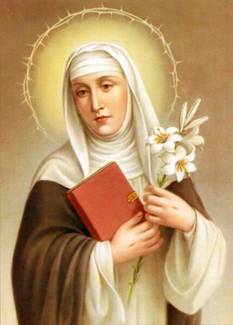 Courage and perseverance are two traits that I admire. The latter is a characteristic that not many people have, is hard to teach, and one that is imperative for success. In my classroom of 2nd graders, I try to remind them to “not give up, but try again and again.” When they become frustrated with challenging work or difficult friendships, they stop wanting to try again. They start to give up - but I tell them, “Keep trying!” and “Don’t be afraid to make a mistake!” Hopefully, one day my students will grow to recognize how courage can help them persevere through anything. People who do extraordinary things should be recognized for their courage and conviction. Saint Catherine of Siena, whose feast day we celebrated yesterday, is a woman whose contributions to the Church, taking action in times of need and exceptional theological writings, sometimes can be overlooked. Born in Siena, Italy in 1347, Catherine spent her life doing the will of God. She began receiving visions and praying to God from a very early age, even seeing in one in which Christ reassured her with an armor of courage that could overcome anything that tempted or threatened her. St. Catherine lived her entire life in prayer and was named a Doctor of the Church by Pope Paul VI on October 4, 1970. She along with St. Teresa of Avila and St. Therese of Lisieux are the three women to have been bestowed with such a title. St. Catherine worked to return Pope Gregory XI to Rome, from Avignon France where the Papacy had been residing for 67 years. Her determination to see this mission through was a testament to her unwavering courage to do God’s will. In her many philosophical letters, prayers, and the Dialogue, St. Catherine reflected on four theological concepts with which she considered while in ecclesiastical mysticism. The first was a Treatise of Divine Providence, the second was a Treatise of Discretion, third was a Treatise of Prayer, and finally a Treatise of Obedience. Throughout her courageous writings, she discusses the goodness of a person’s knowledge of God and his unending love for his children living on earth. Because of this prayerful life she led, in 1375, St. Catherine was blessed with the Stigmata on her hands, feet, and side. Her wounds reflected those of Christ’s and were only visible to the naked eye upon her death in 1380 at the young age of thirty-three. Found incorrupt in 1430, St. Catherine is now buried under the altar of Santa Maria Sopra Minerva, in Rome and a sculpture of her body is on display there, too. Throughout the year, let us strive to be like St. Catherine of Siena and take courage and persevere. Unshaken by those who challenged and doubted her, she remained steadfast in her commitment to Christ, His Church, and His people. You don’t have to be a saint to follow God’s call to courageous witness, but prayer and perseverance can lead you toward holiness in Christ. Krissy Kirby is a teacher for the Archdiocese of Washington, D.C.
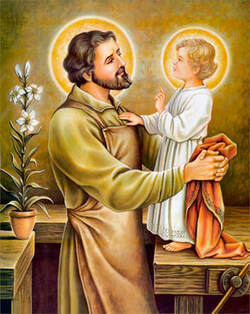 “There is nothing more holy, more eminently perfect, than resignation to the will of God.” ~ St. Vincent de Paul When we hear these words we often think of Mary declaring herself the handmaid of the Lord or Jesus crying out on the cross, “Into your hands Lord, I commend my spirit.” And yet, there is another example of complete sacrifice to God that often slips by us, that of Joseph, the silent and steadfast husband and father, who cared for Mary as the Lord commanded and raised Jesus as his own flesh and blood. “There is nothing more holy, more eminently perfect, than resignation to the will of God.” These are truly words to live by, but not easy words to live by. And yet they give us a powerful image of Joseph, a simple man, a carpenter, a husband, a father, giving himself completely to the Lord. He is a perfect example of someone who wanted to live a simple life, but found more than he could ever imagine when he placed his life in the hands of God. If I had been in Joseph's shoes I would have been afraid, and I am sure that Joseph was afraid, but we know that fear did not guide him. No, “he did as the angel of the Lord had commanded him and took his wife into his home” (Mt 1:24). This image of Joseph is a powerful image. As Saint Pope John Paul II tells us in Redemptoris Custos, Joseph was called by God to be the protector of Mary and the foster-father of Jesus. In some ways we can think of him as the ultimate human protector. He gave up his life and dedicated it to his family, to protect Mary and Jesus so that one day his own son might die a criminal’s death on the cross and save the world. He is a beautiful example of what it means to be a father and a husband, giving all of himself so that his family could live out their own call to serve the Lord. St. Joseph, though often portrayed as a silent figure in the Gospels, remains a beautiful example of fatherhood. Fathers serve in one of the most important and formative roles a child can have. They help us to grow in faith and in love, they teach us the things their fathers taught them, and we look to them for support and guidance, for strength and surety. My own father is one of the greatest men I know. During the last 33 years of marriage he has been a devoted husband and father striving to uphold our faith and me and my three brothers as Catholic gentlemen. He has given his life for his family and God, and I couldn't ask for more. On this feast of St. Joseph the Husband of Mary, it is important for us to remember our own fathers and what they have done for us. It is important to see the sacrifices they have made and how they have guided us to place complete trust in the Lord. As I continue to prepare for marriage this summer I pray and hope that I can live up to the example of St. Joseph and my father, that I can be the husband and father that God is calling me to be. This path is not easy, but I know that if all of us pursuing marriage and those who are already there give ourselves to Christ through the example of St. Joseph that we will live as God has called us to live, in the example of St. Joseph and the Holy Family. This Lenten season I invite you to pursue St. Joseph because in his silence, in his steadfast faith and loyalty to God, and in his devotion and love of his family, he calls us even closer to Christ. Sometimes we need Mary our Mother whose embrace is always loving and warm, like a Mother holding her child. But other times we need the strength of Joseph, a father’s steadfast hand guiding us on the path to Christ, a silent witness to those who have given themselves completely to serving the Lord. Nicholas Shields is a young professional in Washington, D.C.
|
Details
Archives
July 2024
Categories
All
|
About |
Media |
© COPYRIGHT 2024 | ALL RIGHTS RESERVED



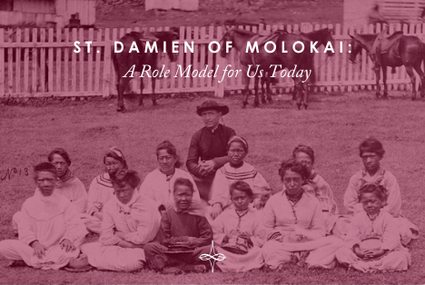
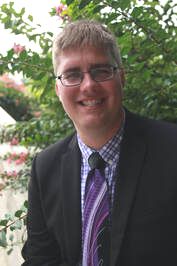

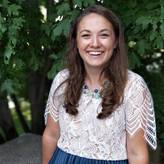

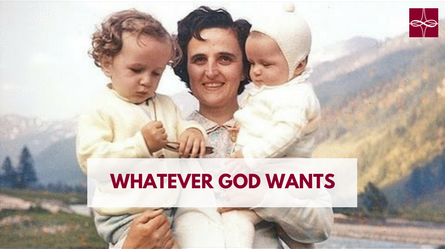
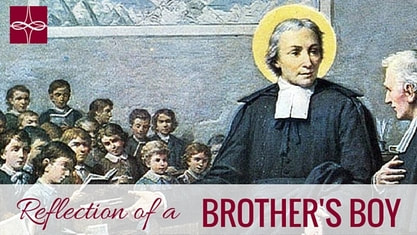

 RSS Feed
RSS Feed